Where Trump budget cuts will hit hardest
- Published
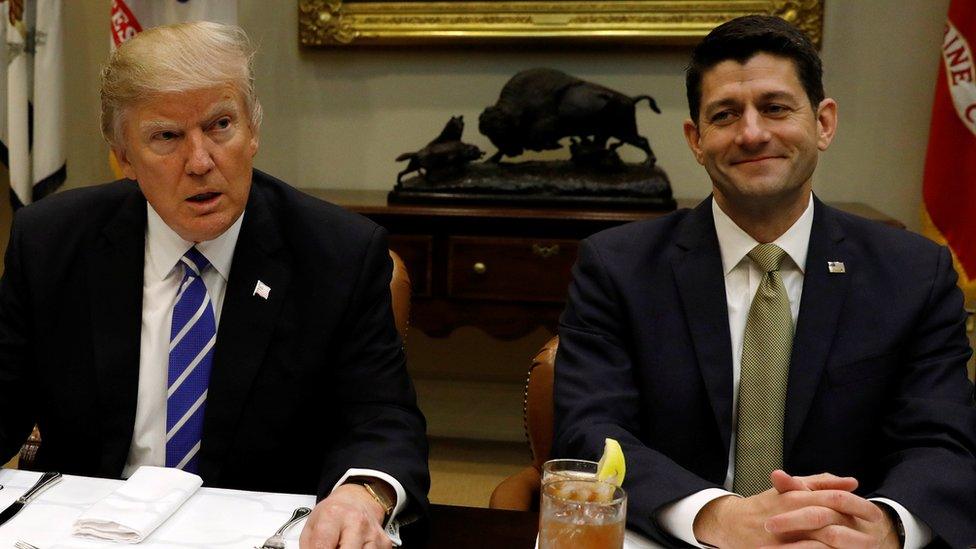
President Donald Trump has released a budget plan that proposes sharp cuts to many US agencies and increased spending on the military.
Known as a "skinny budget", it will initially be limited to the $1tn ( £0.81tn) portion of the $4tn annual federal budget that pays for US agencies and departments.
Although Mr Trump's Republicans control both houses of Congress, segments of the budget plan are expected to face stiff resistance across the parties.
But where will the cuts hit the hardest?
Our correspondents have taken a look.

Diplomacy and global aid
by Barbara Plett Usher, State Department Correspondent
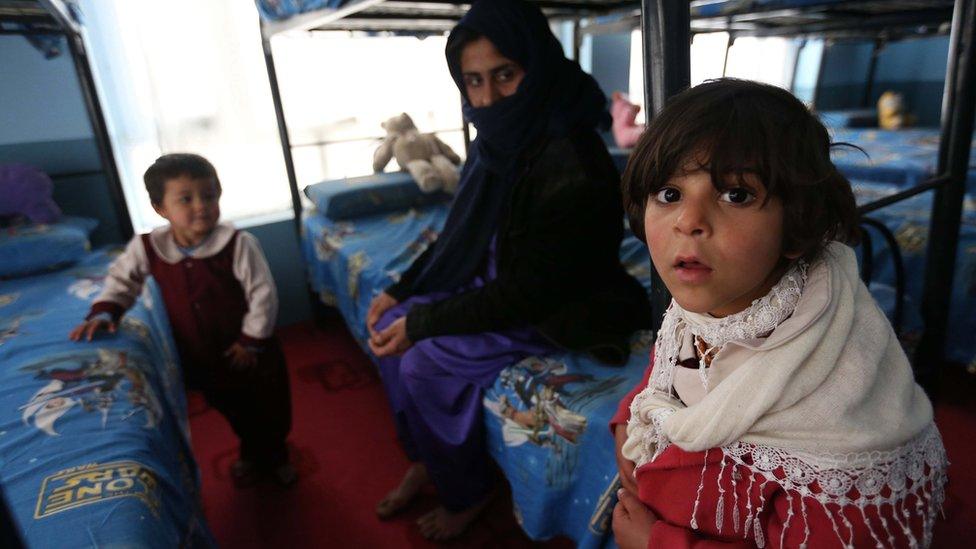
Afghan woman at a USAID-funded addiction recovery centre.
The state department and USAID (US Agency for International Development) between them pay for everything from the diplomatic corps to fighting poverty, promoting human rights and improving healthcare in foreign countries.
The budget proposes a 28% cut in their $25.6 billion "base" funding, which would mean the loss of $10.1bn. And it calls for consolidating the two, which would mean the loss of jobs.
A separate pot of $12bn for what's known as the Overseas Contingency Operations remains intact. It's a sort of war fund operated by the State and Defense Departments, to meet costs in areas like Syria, Iraq and Afghanistan.
When talking about the entire budget, the proposed cut amounts to 31%.
What's left would keep funding for embassy security and core diplomatic activities, as well as for global health initiatives - such as combating HIV/Aids - and a "significant" amount for humanitarian assistance programmes.
It would shift some foreign military assistance from grants to loans - only Israel is guaranteed to keep its current $3bn/year aid package
It would make significant cuts to UN funding, especially climate change programmes; reduce grants to multilateral development agencies such as the World Bank, and refocus economic and development assistance to countries of "greatest strategic importance to the US".
Secretary of State Rex Tillerson's comments that the state department's "historically high" budget is "not sustainable" refers to the steady growth of its allocations during the past 16 years of war. He predicts the US will be engaged in fewer military conflicts and thus the department will need to spend less money.
Whether or not that turns out to be the case, his position is in stark contrast to that of his predecessor, John Kerry. Mr Kerry persistently pointed out that the state department budget was only 1% of the total, and that wasn't nearly enough to effectively carry out the tasks it was assigned.
Former diplomats and military officers have said it is a fundamental flaw to cut the State Department because diplomacy and development are essential for reducing the instability out of which threats grow, and for helping to convert battlefield victories into sustainable peace.

Housing
by Jessica Lussenhop, BBC Washington
The Office of Housing and Urban Development would see a 13% overall budget reduction, equivalent to a $6.2bn cut. HUD is best known for funding affordable housing and community redevelopment initiatives, much of which goes to major urban centres.
"We've spent a lot of money on Housing and Urban Development over the last decade without a lot to show for it," Trump budget director Mick Mulvaney told reporters.
The proposed budget would eliminate the $3bn Community Development Block Grant programme, which provides funds for a wide range of projects from new affordable housing construction to infrastructure to meal delivery services for low-income seniors. The programme has been in place since the 1970s.
The administration says that states and local governments should be responsible for funding housing.
Critics say these cuts could devastate poor families and constitute a reversal on Trump's campaign promise to revitalise the "inner cities".
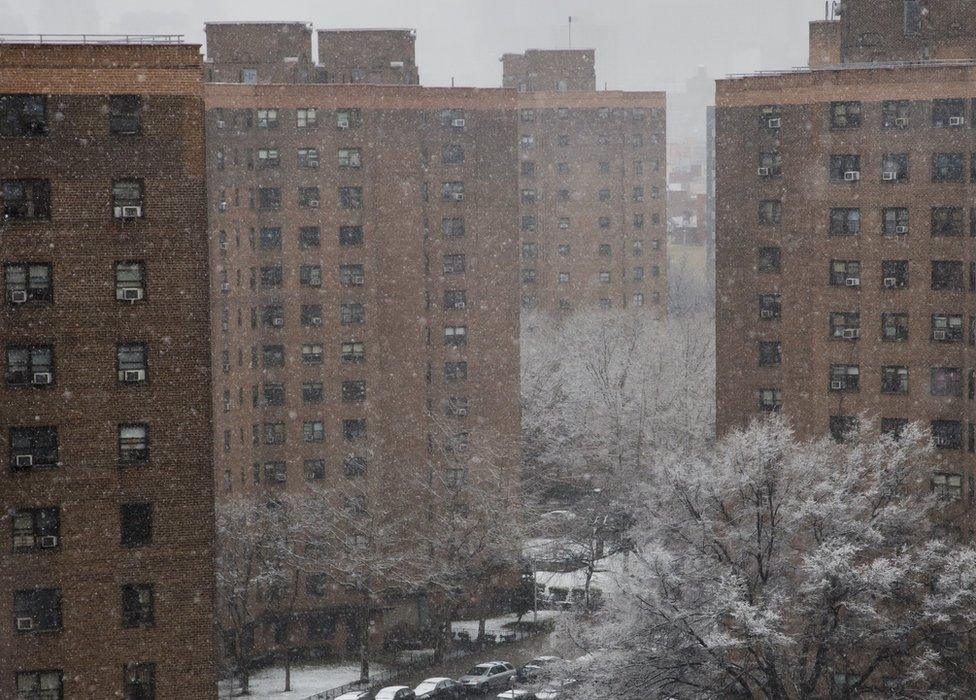

The environment
By Matt McGrath, BBC environment correspondent
US popular support for action to tackle environmental problems reached a peak after the heavily polluted Cuyahoga river in Cleveland caught fire in 1969. Ongoing problems with air and water prompted Richard Nixon to establish the Environmental Protection Agency a year later in 1970, with broad bipartisan support.
Over the past 47 years it has had major successes - acid rain, leaded petrol and the pesticide DDT have become footnotes in history thanks to the agency.
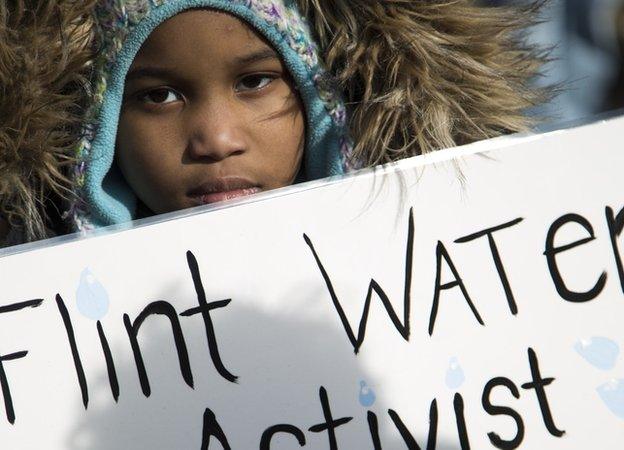
The city has replaced some pipes, but Flint is still without clean drinking water
While the swingeing cuts proposed by the Trump administration will hit the EPA's climate change research abilities and the implementation of Clean Power Plan, the measures will also have a major impact on regional pollution cleanup efforts in the Great Lakes and Chesapeake Bay.
The Superfund programme, which manages and attempts to clean up hundreds of sites poisoned with lead, asbestos and dioxins, would see its cash cut by $330m to $760m.
While President Trump has many times spoke about his belief in clean air and clean water, the ability of the EPA to deliver these is likely to be significantly hampered by the loss of 3,200 employees proposed in the budget. And if an environmental disaster like Cuyahoga or the more recent Flint water crisis strikes in the future, will these proposed cuts be blamed?

The UN
Nada Tawfik, BBC News, New York
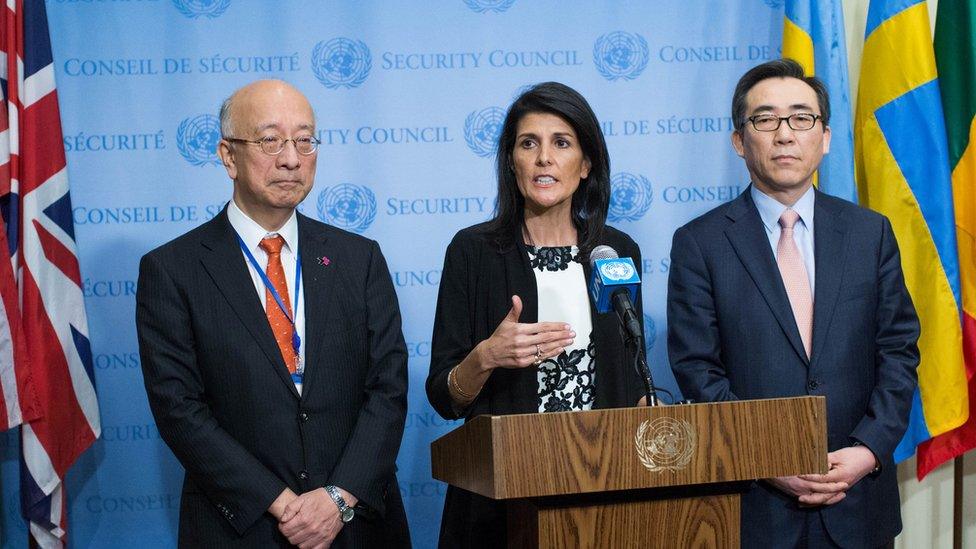
The US is the United Nation's largest contributor. It funds 22% of the UN's regular budget and 28% of UN peacekeeping. No other member state comes close to that level. Japan is the second largest donor at 9% and 10% respectively.
There is no doubt that large-scale disengagement from the US could create chaos and leave gaps that other countries would be unlikely to fill.
The US State Department, which is in charge of the money the US gives to the UN and its affiliated agencies, is facing a 29% decrease. Peacekeeping forces and climate change funding have already been earmarked to take some of the pain.
The UN has warned that abrupt cuts to its funding, as proposed by President Donald Trump, could undermine long-term efforts to reform the organisation.
The French Ambassador to the UN, Francois Delattre, was among those vocal in expressing concerns about a decrease in US funding, saying even the perception that America was in retreat from the international community could lead to instability.
